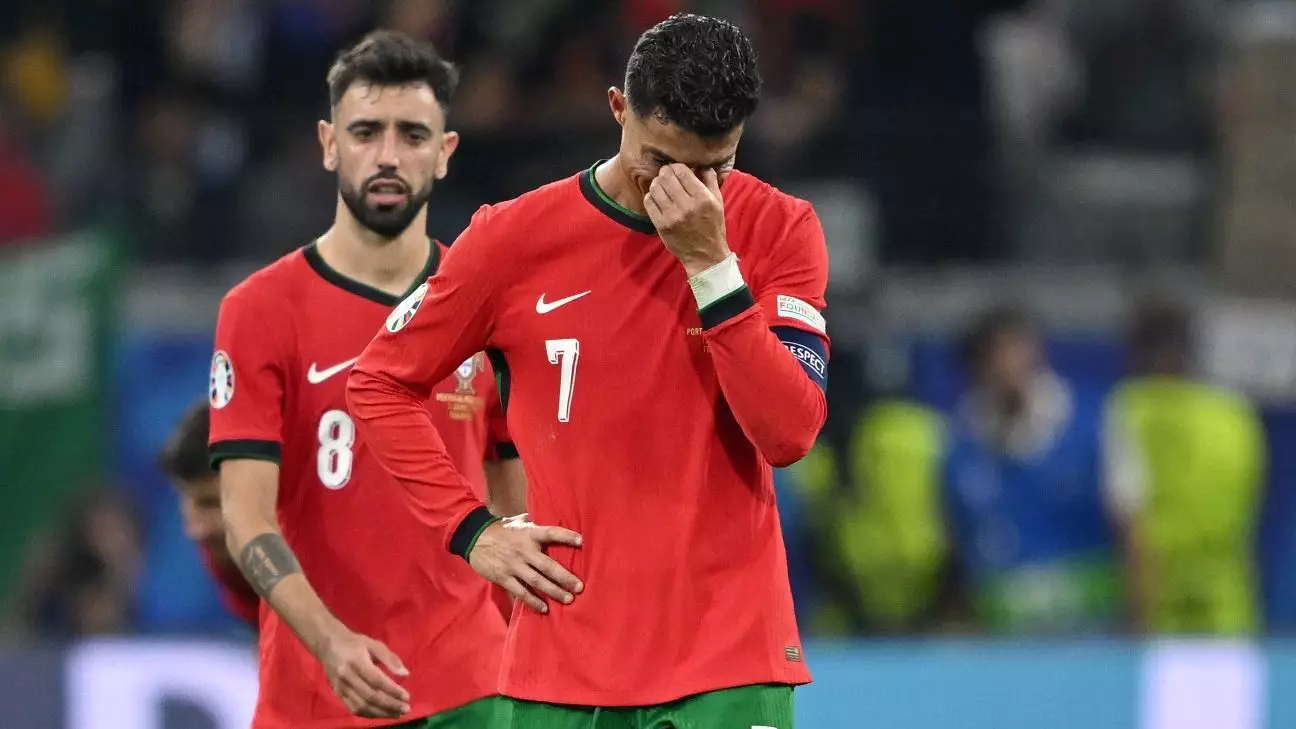When we think of Euro 2024, the first thing that comes to mind is the underperformance of some of the top strikers in world football. Players like Harry Kane, Kylian Mbappé, and Cristiano Ronaldo, who were expected to score goals for fun, ended up struggling to find the back of the net. The tournament saw a combined total of 117 goals in 51 matches, a significant drop from the 142 goals scored at Euro 2020. The Golden Boot award, which is usually dominated by strikers, was shared among a diverse group of players, with only a few traditional forwards making the list. So, what went wrong for these star men?
Let’s start with Cristiano Ronaldo, who had a European Championship to forget for Portugal. Despite being the focal point of Portugal’s attack, Ronaldo failed to find the back of the net, registering 23 shots without scoring a single goal. Manager Roberto Martínez built the team’s attacking system around providing Ronaldo with chances, but the veteran forward’s poor finishing let them down. Ronaldo’s lack of defensive responsibility and minimal involvement in build-up play meant that he was solely focused on shooting, neglecting other aspects of his game. This one-dimensional approach limited Portugal’s attacking options and put immense pressure on Ronaldo to deliver, which he ultimately failed to do.
Euro 2024 showcased a shift in the traditional role of forwards, with an emphasis on link play, movement off the ball, and versatility in attack. Players like Havertz, Depay, and Mikautadze demonstrated that scoring goals is just one aspect of a forward’s responsibilities. Havertz’s selfless runs and movement created space for his teammates, despite underperforming in terms of expected goals. Depay’s involvement in all areas of the pitch and ability to link play with his teammates were crucial for the Netherlands. Mikautadze, on the other hand, played a more unorthodox role for Georgia, focusing on occupying defenders and setting up his teammates for goal-scoring opportunities.
The tournament also saw star forwards like Mbappé and Güler take on roles that allowed them the freedom to impact the game in various ways. Mbappé’s attacking freedom was complemented by his teammates’ defensive work, which allowed him to focus on creating chances and stretching the opponent’s defense. Güler, on the other hand, enjoyed a more isolated role up top for Turkey, with his teammates working tirelessly to cover for his lack of defensive contributions. Both players sacrificed individual goalscoring opportunities for the greater good of their teams, showcasing a blend of attacking flair and tactical discipline.
It’s worth noting the sacrifices made by captains like Kane and Morata, who led by example by putting their team’s success above personal glory. Kane’s deeper role in England’s setup led to reduced goal-scoring output, as he focused on defensive duties and set-piece situations. Morata, known for his goal-scoring prowess, took on a more defensive role for Spain, protecting the ball and freeing up space for his teammates to thrive. Both captains understood the importance of team cohesion and hard work in a tournament setting, where every decision and action can impact the outcome on the pitch.
Euro 2024 was a testament to the evolving role of forwards in modern football. The traditional goal-scoring responsibilities have been complemented by a more diverse set of skills and attributes, highlighting the importance of teamwork, versatility, and sacrifice in achieving success at the highest level. As we look ahead to future tournaments, it will be fascinating to see how the role of forwards continues to evolve and adapt to the ever-changing demands of the game.

